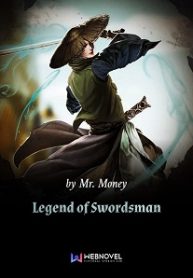Holy Roman Empire - Chapter 102
- Home
- Holy Roman Empire
- Chapter 102 - Chapter 102 Chapter 102 The Kingdom of Sardinia on the Brink Vote for us
Chapter 102: Chapter 102: The Kingdom of Sardinia on the Brink (Vote for us)
Please Continue reading on ΒƟXN0VEL.ƇʘM
Translator: 549690339
King Charles Albert waved his hand and said, “Just teach them how to use a gun, there’s no time to worry about anything else at this point.
Now the focus is on boosting morale and igniting their patriotism. Where training is lacking, let courage compensate.
(vitag.Init = window.vitag.Init || []).push(function(){viAPItag.display(“vi_765923973”)})
As long as they dare to fight and struggle, even if it takes three or five of our soldiers to exchange for one enemy soldier, we can still hold back the Austrians and create favorable conditions for negotiation!”
The king had long since given up on hoping for combat effectiveness; the regular army of the Kingdom of Sardinia had been thoroughly defeated. What could this hastily assembled cannon fodder army achieve? Surely not miracles.
If quality is not sufficient, quantity must prevail. As the local combatants, they had no shortage of people.
After the government’s long-term propaganda, ordinary people had come to blame all their hardships on Austria; now there was a solid base of popular support.
Minister of Army Li Qi timidly said, “Your Majesty, we’re facing a serious shortage of weapons and equipment. Many soldiers have to share a single gun between two or three of them, and this is after we’ve encouraged them to bring their own weapons.”
After a defeat, it’s natural to speak without confidence. If it weren’t for Marshal Badoglio’s noble sacrifice at the last moment, taking all the blame uponhimself, the internal state of affairs in the Kingdom of Sardinia might have already changed.
Even so, the pressure on the government had greatly increased. It could be said that the Austrian army’s presence at the gates had, to some extent, saved the Sardinian Government.
King Charles Albert, politically astute and experienced, seized the opportunity to shift domestic conflicts. Flying the banner of defending the home and country, he arranged all the unstable elements into the army and placed them on the front lines against Austria.
If the Austrian army could wipe them out for him, King Charles Albert probably wouldn’t mind awarding them a grand medal.
Of course, that was impossible; King Charles Albert would never be grateful to the Austrians—unless, after doing away with these people, the Austrian army decided to return home, which was more likely.
Too bad it’s when the Kingdom of Sardinia is at its weakest. If Austria didn’t take a big bite out of them now, could they still consider themselves a great power?
(vitag.Init = window.vitag.Init || []).push(function(){viAPItag.display(“vi_765923973”)})
“Launch a fundraising campaign among the citizens. I will lead by example and donate all the guns in my collection, to gather as many as possible. And for those we can’t supply with guns, we’ll equip them with cold weapons for the time being.
The Foreign Ministry is communicating with England and France, and before long, we should be able to secure enough weapons and equipment,” King Charles Albert said after some thought.
Li Qi was distraught on the inside. He really wanted to ask King Charles Albert what he was thinking. Did the king have no clue what sort of items his collection consisted of?
Any usable firearms had long been requisitioned within the country, and the royal family’s collection was mostly composed of antique firearms—the oldest was a matchlock gun from the 14th century.
These weapons were fine for decoration, but if they were to be used on the battlefield, it would be tantamount to murder.
As one of the birthplaces of the Renaissance, the nobles here pursued heritage and historical culture. Naturally, the more ancient and storied the weapons in their collection, the better.
During this mobilization, all the noble sons and youth of eligible age in the Kingdom of Sardinia had entered military service, and they had long brought out any weapons they could use.
Even that was acceptable. As long as the weapon could fire a bullet, it could kill; they could simply be used as disposable items.
The most tragic part was having to make do with cold weapons—that probably meant preparing for hand-to-hand combat with the Austrian army. Facing an unreliable leader, Li Qi ultimately chose to say—”Your Majesty is wise.”
Prime Minister Azelio couldn’t help but speak out, “Your Majesty, the French have already refused our request to purchase weapons and have even followed the People of Swiss’s lead in strictly investigating smuggling and prohibiting the influx of arms and ammunition into our country.”
The France-Austrian Secret Treaty was no longer a secret, but to the Kingdom of Sardinia, Austria alone was already deadly; with France joining in, they would lose even the courage to resist.
(vitag.Init = window.vitag.Init || []).push(function(){viAPItag.display(“vi_765923973”)})
The Sardinian Government had chosen to feign ignorance, hoping to rely on internal contradictions in the French government to escape this crisis.
But now, the pretense could no longer continue. It was normal for the neutral country, Switzerland, to embargo weapons against them. Now that the French were doing the same, it was blatant malice.
Let’s not forget, before the war broke out, it was the French government that spurred them into action, promising a bunch of military assistance. Now, not to talk of assistance, even normal trade couldn’t proceed smoothly.
There was no way around it. No matter how much they promised benefits to the French, they couldn’t possibly do it as decisively as Franz.
Austria could cede half of the Kingdom of Sardinia to the French—that was generous with someone else’s resources. The Sardinian Government could never make such a decision.
In the face of interests, the promises of politicians were as good as farts.
The French ambition towards Italy had been longstanding. Due to the restraint of the Habsburg Family, they tried for hundreds of years to no avail.
Now that the opportunity had presented itself, politicians needed the political prestige of expanding territories, capitalists needed to secure a larger market, and Nobility Officers needed to earn military exploits.
With so many people having their own interests, it was natural that they could not be stopped by the diplomatic efforts of the Kingdom of Sardinia. Were it not for the struggle for dominance within, the French army would have already crossed over by now.
“Bang!”
King Charles Albert slammed the table furiously and said, “Damn the Frenchmen, they should all go to hell. If we had known during the war against France, we should not have let them off so easily!”
(vitag.Init = window.vitag.Init || []).push(function(){viAPItag.display(“vi_765923973”)})
Everyone chose to ignore the king’s roar. Wasn’t it obvious what the situation of the Kingdom of Sardinia had been during the war against France?
“Your Majesty, the British have agreed to mediate this war. At this moment, British Foreign Secretary Palmerston has already left London and is en route to Vienna,” Prime Minister Azelio hastily announced the good news.
While the Kingdom of Sardinia was on the brink, the Parisians, filled with internationalist spirit, launched the June uprising and saved the Kingdom of Sardinia.
The Paris June Revolution was quite legendary. After the success of the French bourgeoisie in seizing power, they successfully allied themselves with Austria and Russia.
The Prussian liberals sent a note to the French government, inviting them to support the Polish independence movement together, which was, of course, rejected by the French government.
After the news came, in support of the Polish revolution, 150,000 Parisian workers took to the streets on the morning of June 15, 1848, marching and demonstrating. They occupied the Parliament building, demanding the French government to form an expeditionary force to support Polish independence.
Unsurprisingly, such internationalist spirit was rejected by the French government, and the contradiction between the two parties began to intensify. On June 23, a revolution erupted in Paris once again.
With the internal instability in France, and to avoid the situation from worsening, the Paris Government had to cancel the plans to send troops to the Kingdom of Sardinia.














